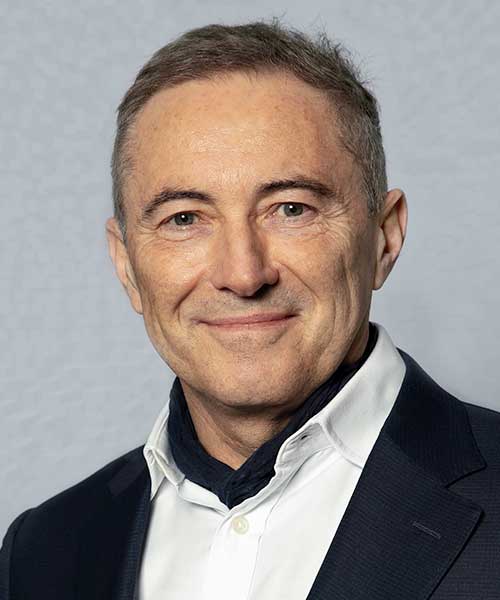
Scandions vd kommenterar det positiva patentbeskedet i USA
Scandion Oncologys läkemedelskandidat SCO-101 utvärderas i två kliniska studier med slutmålet att bekämpa cancercellernas resistens mot dagens cancerbehandlingar. I slutet på förra veckan stod det klart att patentskyddet kommer att stärkas för SCO-101 på den viktiga amerikanska marknaden. BioStock kontaktade bolagets vd Francois Martelet för en kommentar om vad detta innebär för Scandion på sikt.
Scandion Oncology ledande kandidat SCO-101 utvärderas i fas IIa- respektive Ib-studierna CORIST och PANTAX. Dessa fokuserar på kemoterapiresistent metastaserad tjocktarmscancer (mCRC) respektive pankreascancer, där läkemedelsresistens drabbar 90 procent av alla patienter. Resistensen gör således att de flesta behandlingar av metastaserad cancer misslyckas.
Scandions fas Ib-studie PANTAX slutfördes framgångsrikt i mars 2023 och när de slutliga resultaten är tillgängliga kommer bolaget att besluta om nästa steg i utvecklingen av SCO-101 som en kombinationsbehandling av bukspottkörtelcancer. I CORIST-studien ges patienterna SCO-101 tillsammans med kemoterapin FOLFIRI, det vill säga dagens standard-of-care för mCRC. Topline-data förväntas senare denna månad.
“This patent is significant in that it provides a very broad protection for a significant amount of time, running until at least 2037. It covers the use of our lead compound SCO-101 with any cancer treatment for a number of different cancers, so it gives us a significant time for freedom to operate.” – Francois Martelet, vd Scandion Oncology
Vd kommenterar det amerikanska patentbeskedet

I slutet på förra veckan erhöll Scandion ett förhandsbesked från det amerikanska patentverket (United States Patent and Trademark Office), vilket innebär att ett patent officiellt kommer att beviljas för SCO-101 i USA inom kort.
BioStock kontaktade Scandions vd Francois Martelet för att få veta vad patentbeskedet innebär för bolaget när man nu avancerar framåt med SCO-101 i kliniska studier.
What significance does the Notice of Allowance for the new patent hold for Scandion Oncology’s lead compound SCO-101 in the US market?
– This patent is significant in that it provides a very broad protection for a significant amount of time, running until at least 2037. It covers the use of our lead compound SCO-101 with any cancer treatment for a number of different cancers, so it gives us a significant time for freedom to operate.
How does the granted patent, covering methods of using SCO-101, contribute to Scandion’s strategy in treating resistant cancers, including colorectal and pancreatic cancer?
– Ensuring a strong patent protection of our molecules is a core element of our strategy. As a company based on significant investments in research and development we rely on intellectual protection of our assets and continuously apply for relevant patents related to our discoveries. We have been successful in this also being granted a very important Composition of Matter-patent on SCO-101 just last year.
With the extended intellectual protection until at least 2037, how does Scandion plan to leverage this broad patent coverage, especially in targeting earlier lines of treatment for cancer?
– We are, of course, still some way from being able to introduce a new medicine on the market, so it is far too early to speak about such plans in detail. Having said that, this patent do give us the right to exclusively use SCO-101 also in early lines of treatment, which could be a future opportunity for us to expand the potential market.
In what ways does the newly granted patent complement the existing patent exclusivity on SCO-101, and how does it align with Scandion’s focus on combination therapy for resistant cancers?
– SCO-101 already has a strong patent protection which is further enhanced with this patent, which basically covers combination treatments specifically and such are of course what we seek to develop at Scandion. Our other patents include use patents and the Composition of Matter-patent mentioned.
Finally, what implications do you anticipate the overall patent portfolio will have for potential collaborations and partnerships, and also for Scandion’s position in the cancer treatment landscape?
– All biotech companies relies on patents to be able to recoup its investments and create value long term and this also holds true for us. So naturally any potential partner will also see this as important and this patent strengthens us also in that regard.
Innehållet i BioStocks nyheter och analyser är oberoende men BioStocks verksamhet är i viss mån finansierad av bolag i branschen. Detta inlägg avser ett bolag som BioStock erhållit finansiering från.


